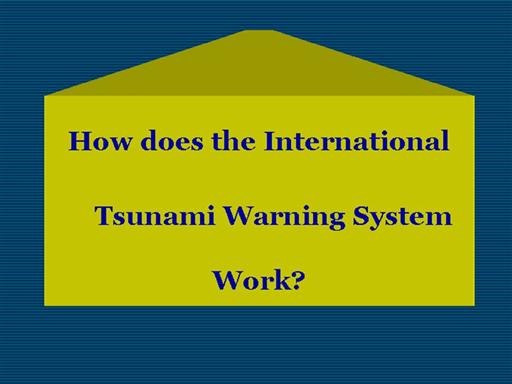| front |1 |2 |3 |4 |5 |6 |7 |8 |9 |10 |11 |12 |13 |14 |15 |16 |17 |18 |19 |20 |21 |22 |23 |24 |25 |26 |27 |28 |29 |30 |31 |32 |33 |34 |35|36 |37 |38 |39 |40 |41 |42 |43 |44 |45 |46 |47 |48 |49 |50 |51 |52 |53 |54 |55 |56 |57 |58 |59 |60 |61 |review |
 |
“Functioning of ITWS begins with the detection of an earthquake which has a magnitude and location that make it potentially capable of generating a tsunami.
§
The earthquake has to be of sufficient magnitude to trigger the alarm attached to the seismograph at the station where it is being recorded. The alarm thresholds are set so that ground vibrations of the amplitude and duration associated with an earthquake of approximate magnitude 6.5 or greater on the Richter Scale anywhere in the Pacific region will cause them to sound.
§
Personnel at the station immediately interpret their seismographs and send their readings to the Pacific Tsunami Warning Center (PTWC)., in Honolulu, which are the headquarters for the international system (ITWS).
§
Upon receipt of a report from one of the participating seismic observatories or as a consequence of the triggering of their own seismic alarm, PTWC personnel send messages requesting data from the observatories in the system.”
§
Citation source: http://www.drgeorgepc.com/TsunamiFAQ.html |